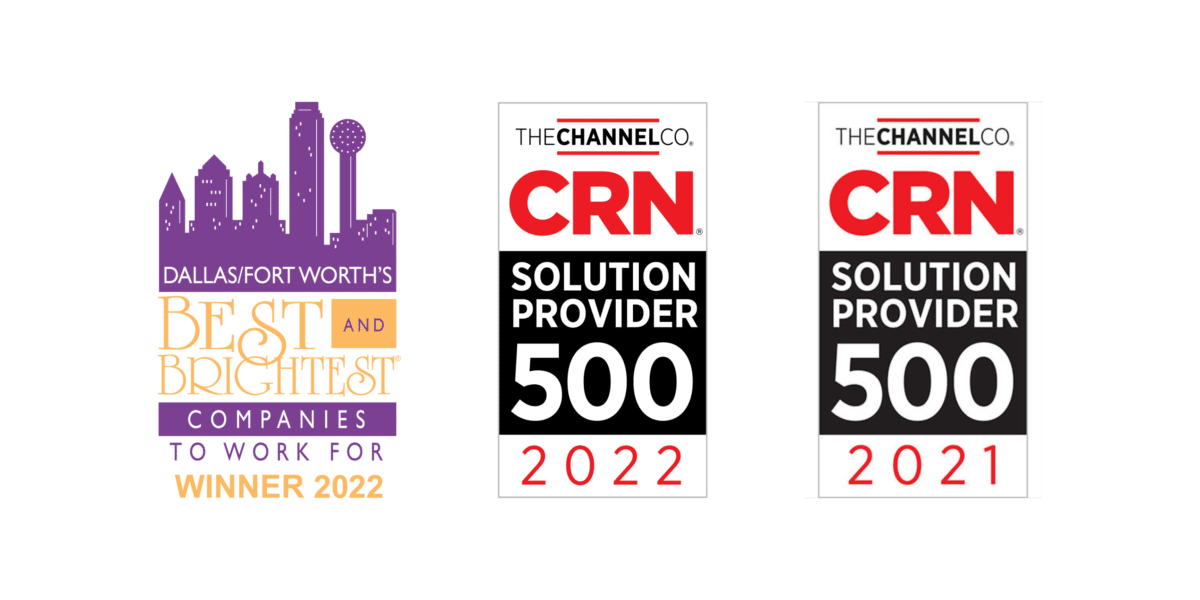Who is Clear Technologies?
A lot has changed in the past 30 years, but what hasn’t changed is our dedication to our clients. Whether you are looking to lower costs or get the best performance for new workloads, we stand ready to discover, pursue, and solve the problems that are meaningful to you.


“The rapid development of new technology and information has impacted many solution providers and their customers. At Clear Technologies, we think of transformation as a constant, instead of, as a destination. We invest in our clients by seeking to understand their problems not only for today but also for tomorrow. Being recognized in the top 500 solution providers is a validation of our client-first approach.”
Phil Godwin
President, Clear Technologies
THE CLEAR TECHNOLOGIES WAY
“The Clear Technologies Way” is comprised of 30 fundamental beliefs. These are the values, behaviors, principles, and practices that are the foundation for everything that Clear does. It is who we are and explains how we relate to our clients. Each week our team focuses on a particular fundamental and makes a conscious effort to live up to its meaning. We call this our Fundamental of the Week or FOTW.
Demonstrate an unwavering commitment to doing the right thing in every action you take and in every decision you make, especially when no one’s looking. Always tell the truth, no matter theconsequences. If you make a mistake, own up to it, apologize, and make it right.
It’s all about the experience. With every experience, do the little things, as well as the big things, that surprise people. Make every interaction stand out for its helpfulness. Create the “WOW” factor that turns clients into raving fans. This includes both internal and external clients.
Demonstrate a passion for excellence and take pride in the quality of everything you touch and everything you do. Good is not good enough. Always ask yourself, “Is this my best work?”
In all situations, do what’s best for the client, even if it’s to our own short-term detriment. Put their needs ahead of our own. There’s no greater way to build a reputation than to steadfastly do what’s right for others. Every day.
Demonstrate a relentless solution focus, rather than pointing fingers or dwelling on problems. Identify lessons learned and use those lessons to improve ourselves and our processes so we don’t make the same mistake twice. Get smarter with every mistake. Learn from every experience.
Create clarity and avoid misunderstandings by discussing expectations upfront. Set expectations for others and ask when you’re not clear on what they expect of you. End all meetings with clarity about action items, responsibilities, and due dates.
Give others your undivided attention. Be present and engaged. Minimize the distractions and let go of the need to agree or disagree. Suspend your judgment and be curious to know more, rather than jumping to conclusions. Above all, listen to understand.
Speak honestly in a way that helps to make progress. Say what you mean, and be willing to ask questions, share ideas, or raise issues that may cause conflict when it’s necessary for team success. Be courageous enough to say what needs to be said. Address issues directly with those who are involved or affected.
Respond to questions and concerns quickly, whether it’s in person, on the phone, or by e-mail. This includes simply acknowledging that we got the question and we’re “on it,” as well as keeping those involved continuously updated on the status of outstanding issues.
Take personal responsibility for making things happen. It’s never someone else’s job or someone else’s fault. Be resourceful and show initiative. If you see it, own it, and make sure it gets done. Don’t make excuses.
It’s not about you. Don’t let your ego or personal agenda get in the way of doing what’s best for theteam. Be there for each other and be willing to step into another role or help a co-worker when that’s what’s required for success. Help each other to succeed.
While effort is important, our business runs on results. Follow-up on everything and take responsibility to ensure that tasks get completed. Set high goals, use measurements to track your progress, and hold yourself accountable for achieving those results.
With appropriate respect for confidentiality, share information freely throughout our organization. Themore people know, the better we can collaborate. Learn to ask yourself, “Who else needs to know this?”
Every conversation, phone call, e-mail, letter, and even voicemail, sets a tone and creates an impression. Pay attention to every interaction and be sure you’re setting a tone that’s friendly, warm, and helpful.
Regularly examine every aspect of your work to find ways to improve. Don’t be satisfied with the status quo. “Because we’ve always done it that way” is not a reason. Guard against complacency. Find ways to get things done better, faster, and more efficiently.
Know your audience. Write and speak in a way that they can understand. Avoid using internal lingo, acronyms, and industry jargon. Use the simplest possible explanations.
Understand your clients’ world. Know their challenges and frustrations. See the world from their perspective. The better you understand them, the more effectively you can anticipate and meet their needs.
Make decisions by asking yourself, “What would I do if this were my company? What would I do if this were my own money? Will this help the company to succeed?”
Solve problems before they happen by anticipating future issues, planning for contingencies, and addressing them in advance. Work with appropriate lead times. Preventing issues is always better than fixing them.
Recognizing people doing things right is more effective than pointing out when they do things wrong. Regularly extend meaningful acknowledgment and appreciation — in all directions throughout our organization.
Own your development. Seek out and take advantage of every opportunity to gain more knowledge, to increase your skills, and to become a greater expert. Be resourceful about learning and sharing best practices.
What got us here is not the same as what will get us to the next level. Get outside your comfort zone, rather than stubbornly hanging on to old ways of doing things. Be excited by the possibilities that change and growth bring. Be flexible.
Missing just one detail can have an enormous impact on a project. Be a fanatic about accuracy and precision. The goal is to get things right, not simply to get them done. Double-check your work. Get the details right the first time.
Be organized and plan your work for maximum efficiency. Have all the tools necessary before starting your work. Be thoughtful about your schedule, and have a game plan for your calls, your tasks, and your workday. Know the priorities and work on them first.
Work from the assumption that people are good, fair, and honest, and that the intent behind their actions is positive. Set aside your own judgments and preconceived notions. Give people the benefit of the doubt.
Get to know your clients and co-workers on a more personal level. Talk more and e-mail less. Understand what makes others tick and what’s important to them. Strong relationships enable us to more successfully work through difficult issues and challenging times.
Create systems and processes that are scalable and that support our ability to perform with consistency. Strong processes are the foundation of organizational effectiveness.
We’re all responsible for, and benefit from, our company’s image and reputation. Consider how your actions affect our collective reputation, and be a proud ambassador for the company.
While our passion for excellence is real, remember that the world has bigger problems than the daily challenges that make up our work. Stuff happens. Keep perspective. Don’t take things personally or take yourself too seriously. Laugh every day.
